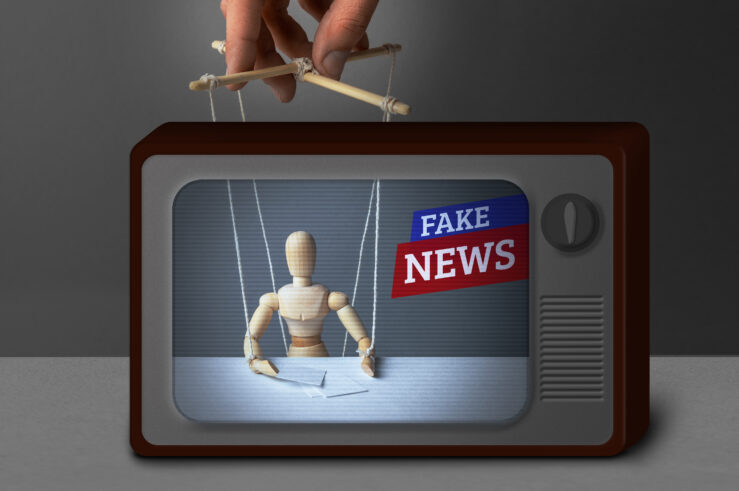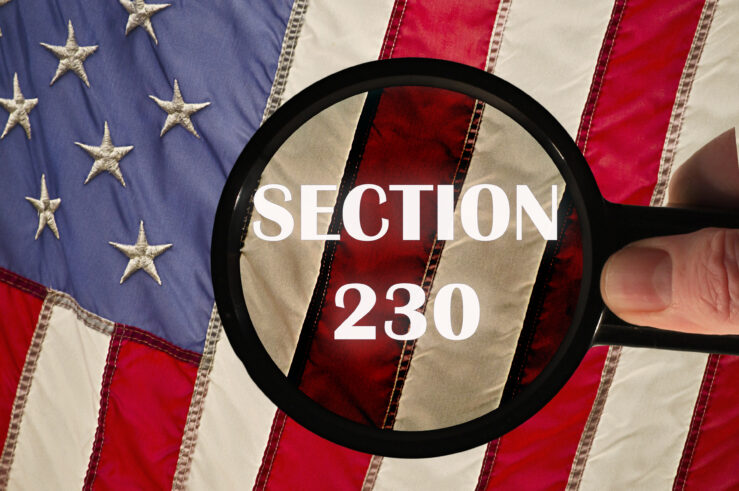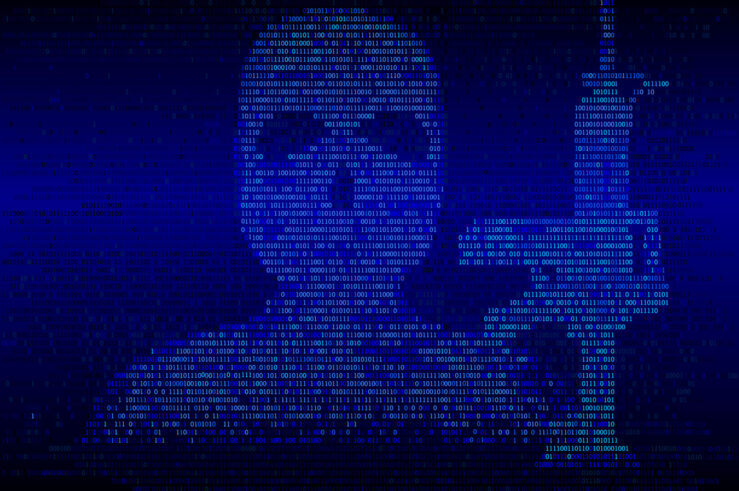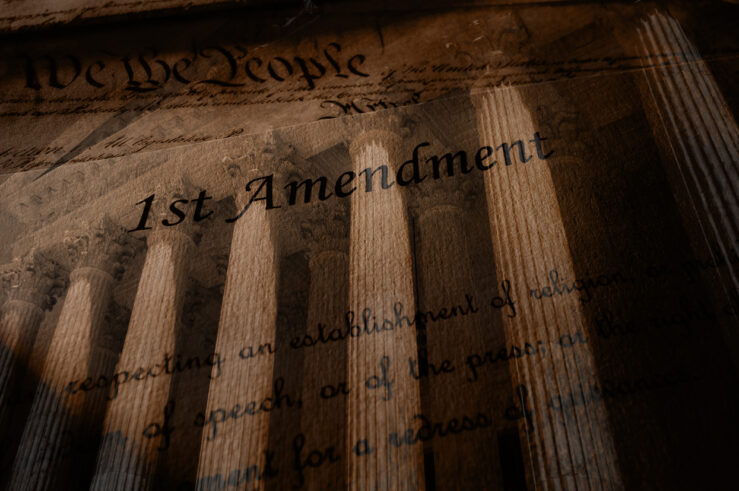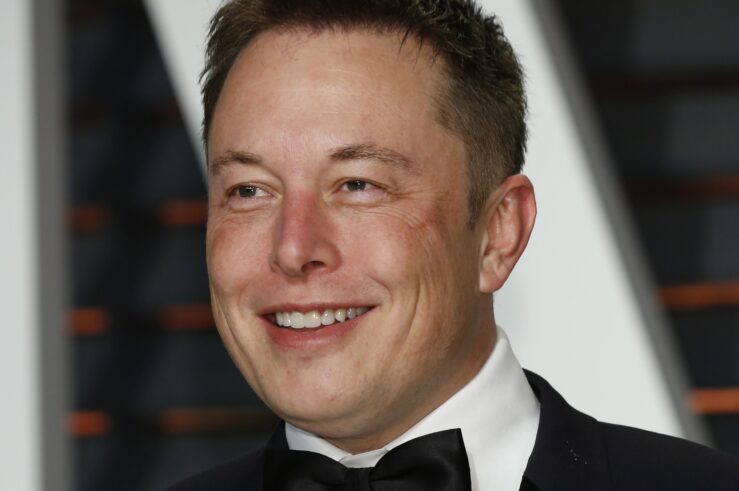Showing archive for: “Intermediary Liability”
Twitter v. Taamneh: Intermediary Liability, The First Amendment, and Section 230
After the oral arguments in Twitter v. Taamneh, Geoffrey Manne, Kristian Stout, and I spilled a lot of ink thinking through the law & economics of intermediary liability and how to draw lines when it comes to social-media companies’ responsibility to prevent online harms stemming from illegal conduct on their platforms. With the Supreme Court’s recent decision in Twitter v. Taamneh, ... Twitter v. Taamneh: Intermediary Liability, The First Amendment, and Section 230
The Law & Economics of Children’s Online Safety: The First Amendment and Online Intermediary Liability
Legislation to secure children’s safety online is all the rage right now, not only on Capitol Hill, but in state legislatures across the country. One of the favored approaches is to impose on platforms a duty of care to protect teen users. For example, Sens. Richard Blumenthal (D-Conn.) and Marsha Blackburn (R-Tenn.) have reintroduced the Kid’s ... The Law & Economics of Children’s Online Safety: The First Amendment and Online Intermediary Liability
Twitter v. Taamneh and the Law & Economics of Intermediary Liability
The Senate Judiciary Committee’s Subcommittee on Privacy, Technology, and the Law will host a hearing this afternoon on Gonzalez v. Google, one of two terrorism-related cases currently before the U.S. Supreme Court that implicate Section 230 of the Communications Decency Act of 1996. We’ve written before about how the Court might and should rule in ... Twitter v. Taamneh and the Law & Economics of Intermediary Liability
How Will the Law Deal with AI Getting Facts Wrong?
It seems that large language models (LLMs) are all the rage right now, from Bing’s announcement that it plans to integrate the ChatGPT technology into its search engine to Google’s announcement of its own LLM called “Bard” to Meta’s recent introduction of its Large Language Model Meta AI, or “LLaMA.” Each of these LLMs use artificial intelligence ... How Will the Law Deal with AI Getting Facts Wrong?
Section 230 & Gonzalez: Algorithmic Recommendations Are Immune
In our previous post on Gonzalez v. Google LLC, which will come before the U.S. Supreme Court for oral arguments Feb. 21, Kristian Stout and I argued that, while the U.S. Justice Department (DOJ) got the general analysis right (looking to Roommates.com as the framework for exceptions to the general protections of Section 230), they ... Section 230 & Gonzalez: Algorithmic Recommendations Are Immune
Does the DOJ’s Approach in Gonzalez Point the Way Toward Section 230 Reform?
Later next month, the U.S. Supreme Court will hear oral arguments in Gonzalez v. Google LLC, a case that has drawn significant attention and many bad takes regarding how Section 230 of the Communications Decency Act should be interpreted. Enacted in the mid-1990s, when the Internet as we know it was still in its infancy, ... Does the DOJ’s Approach in Gonzalez Point the Way Toward Section 230 Reform?
What Do Twitter’s Struggles with CSAM Mean for Section 230 Reform?
Twitter has seen a lot of ups and downs since Elon Musk closed on his acquisition of the company in late October and almost immediately set about his initiatives to “reform” the platform’s operations. One of the stories that has gotten somewhat lost in the ensuing chaos is that, in the short time under Musk, ... What Do Twitter’s Struggles with CSAM Mean for Section 230 Reform?
NetChoice, Net Neutrality, and the Future of the First Amendment Online
In an expected decision (but with a somewhat unexpected coalition), the U.S. Supreme Court has moved 5 to 4 to vacate an order issued early last month by the 5th U.S. Circuit Court of Appeals, which stayed an earlier December 2021 order from the U.S. District Court for the Western District of Texas enjoining Texas’ ... NetChoice, Net Neutrality, and the Future of the First Amendment Online
The Market for Speech Governance: Free Speech Strikes Back?
The tentatively pending sale of Twitter to Elon Musk has been greeted with celebration by many on the right, along with lamentation by some on the left, regarding what it portends for the platform’s moderation policies. Musk, for his part, has announced that he believes Twitter should be a free-speech haven and that it needs ... The Market for Speech Governance: Free Speech Strikes Back?
Senate Bill Looks to Rebalance ‘Internet Freedom’ and Creators’ Rights
All too frequently, vocal advocates for “Internet Freedom” imagine it exists along just a single dimension: the extent to which it permits individuals and firms to interact in new and unusual ways. But that is not the sum of the Internet’s social value. The technologies that underlie our digital media remain a relatively new means ... Senate Bill Looks to Rebalance ‘Internet Freedom’ and Creators’ Rights
Fleites v. MindGeek Contemplates Significant Expansion of Collateral Liability
In Fleites v. MindGeek—currently before the U.S. District Court for the District of Central California, Southern Division—plaintiffs seek to hold MindGeek subsidiary PornHub liable for alleged instances of human trafficking under the Racketeer Influenced and Corrupt Organizations (RICO) and the Trafficking Victims Protection Reauthorization Act (TVPRA). Writing for the International Center for Law & Economics ... Fleites v. MindGeek Contemplates Significant Expansion of Collateral Liability
10 Years After SOPA/PIPA, Congress Still Needs to Address Online Piracy
Activists who railed against the Stop Online Piracy Act (SOPA) and the PROTECT IP Act (PIPA) a decade ago today celebrate the 10th anniversary of their day of protest, which they credit with sending the bills down to defeat. Much of the anti-SOPA/PIPA campaign was based on a gauzy notion of “realizing [the] democratizing potential” ... 10 Years After SOPA/PIPA, Congress Still Needs to Address Online Piracy


